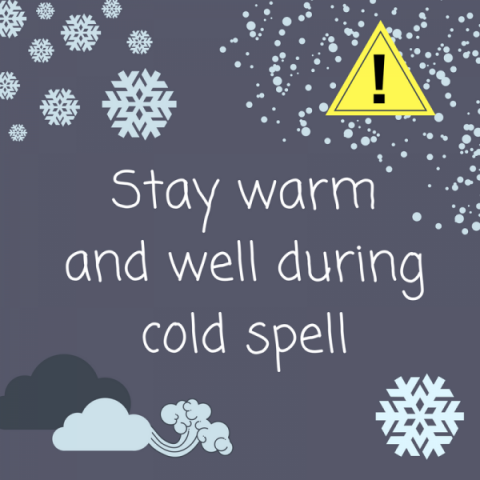Public health advice during cold spell 2018

The Public Health Agency (PHA) has issued advice for people to look after themselves and others as temperatures drop due to cold winds from the east.
Mary Carey, Emergency Planning Co-ordinator at the PHA, said: “We know a cold spell is coming, which gives us the opportunity to plan ahead to try to reduce its impact.
“For some people the onset of the cold weather can bring particular hazards. Vulnerable and older people can find it difficult to get out to the shops or to keep their house adequately heated, putting them at risk.
“However, there are steps we can take to reduce the impact of cold weather on ourselves, and particularly on people who are most likely to be adversely affected by a drop in temperature and icy conditions.”
The following steps can help you, or a neighbour or someone you care for, stay warm in the home:
- wear multiple layers of clothing and a hat and gloves, even indoors if it is cold;
- heat your main living room to around 18-21ºC (64-70ºF) and the rest of the house to at least 16ºC (61ºF);
- heat all the rooms you use in the day;
- if you can’t heat all your rooms, make sure that you keep your living room warm throughout the day;
- it is important to make sure your heating is safe and that your house is properly ventilated, to reduce the risk of carbon monoxide poisoning;
- never use an electric blanket and hot water bottle together as you could electrocute yourself;
- wear bed socks and thermal underwear at night;
- eat well – food is a source of energy which helps to keep your body warm. Try to make sure you have hot meals and drinks regularly throughout the day.
Mary Carey added: “The icy weather can also present problems for people with reduced mobility. Every year in Northern Ireland, 1 in 3 over-65s and around half of over 85s will fall at least once, and for many this can mean spending extended time in hospital, which can have a long-term impact on independence.
“Vulnerable and older people can find it difficult to get out and about during cold and icy weather, so we are urging carers or neighbours of people who may be less mobile to offer a hand ahead of the cold snap kicking in. This could mean picking up essentials such as food, gas or electricity top-ups, or repeat prescriptions before the weather gets worse. This will reduce the need to go out during the cold weather and cut the risk of falls and injuries.”
If you are worried about a relative or an older neighbour, contact your local council. There is also help and support from the charity Age NI. The Age NI website has information on how to stay warm in winter which contains useful contact numbers and advice: www.ageuk.org.uk/northern-ireland
For further information see pha.site/badweather or www.nidirect.gov.uk/snow-ice
Ends
